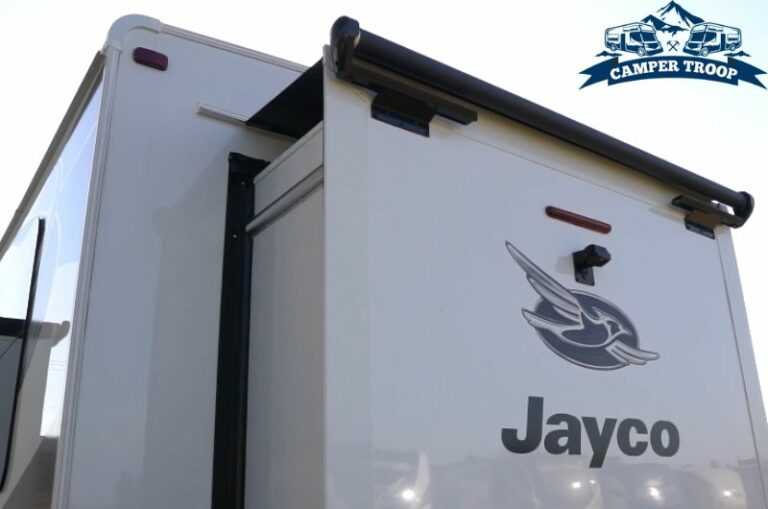RV Water Heater Works On Propane But Not On Electric – Why?
Are you experiencing the frustration of an RV water heater that runs perfectly fine on propane but seems to be giving up on its electric mode? You’re not alone! Many RV owners encounter this perplexing issue, wondering why their electric setting isn’t delivering the comforting warmth they desire.
RV water heater works on propane but not electric due to faulty heating element or electric igniter. In addition to that, power and lighting issues, insufficient shore power connection, problematic thermostat and check valve malfunction can also create the issue.
Let’s dive deeper into the reasons and solutions of the RV water heater refusing to work on electricity. We have put together a detailed guide to help you out with this problem right away!
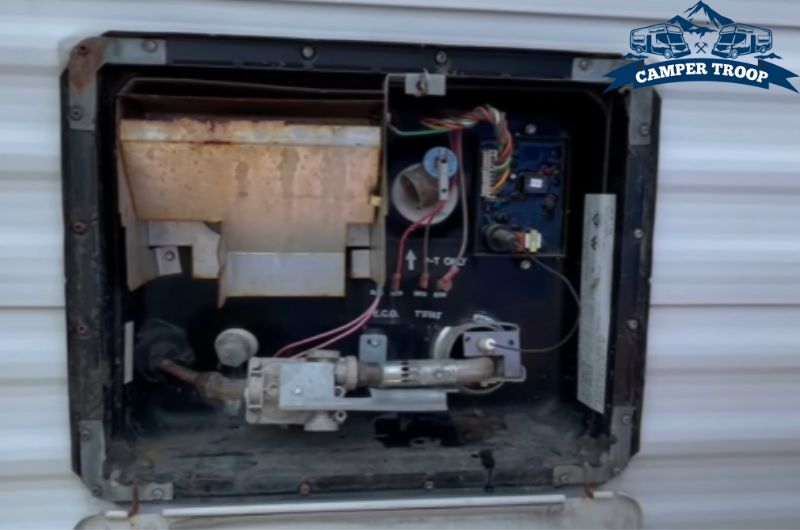
Reasons RV Water Heater Works On Propane But Not Working On Electric
There could be a handful of reasons for the RV water heater not working on electricity. All of them are related to the electrical systems of the water heater. The main possible causes are mentioned below:
- Corroded electric heating element
- Faulty electric ignition
- Pilot light keeps going out
- Power outlet issues
- Circuit breakers tripping
- Low voltage
- Wiring or lighting issues
- Faulty thermostat
- Check valve malfunction
Troubleshooting RV Water Heater Not Working On Electric
It is true that you can still perfectly run the RV water heater without the electric system working properly.
But it is better to diagnose the source of the electric problem and fix it right away. This way, you can run the water heater with both propane and electricity according to your convenience.
Here is a detailed troubleshooting guide for you when the RV water heater is not working on electric:
1. Check The Electric Water Heating Element
The water heating element is an essential component which provides heat from the electricity to the entire system. This element is assembled with a lot of tiny sensitive parts and has a limited lifespan.
It can corrode over the course of time and go out of service. If the water heater is run without water, the heating element can even melt and stop working.
If you have a multimeter, you can test the heating element of your water heater. The heating element is positioned at the back of the heater in
Atwood and Domestic systems. It is found in the external water heater compartment on the front of Suburban systems.
- Turn off the electric power switches of the water heater.
- Set your multimeter to ohms.
- Put the leads on the metal plates underneath the screw heads of the heating element.
- The voltage should be between 9.6 and 10. If the voltage is out of range by 10% or more, the heating element should be replaced. Contact a mechanic and a professional for this replacement.
2. Replace The Electric Ignition
The pilot light is started by the electric igniter when the thermostat demands heat. This switch manages the water heater’s operation.
But this igniter can run into some difficulties and stop working too. Electric ignition failure can occur due to malfunction at any time.
Find the access panel for the water heater and replace the electric igniter there. Two wires linked to the igniter can be found within the panel once it has been removed.
Take the wires apart and carefully remove the old igniter. Place the new igniter in its place now.
Read Also: How to Troubleshoot & Fix RV Tankless Water Heater Problems?
3. Look For A Tripped Circuit Breaker or Blown Out Fuse
The entire electric system in the water heater runs with the help of the circuit breaker.
These circuits have multiple connections attached to them. Sometimes, there could be an electric power surge from the source which ends up tripping the circuit breaker of the heater.
The power surge also overloads the 12V fuse and blows it out. As a result, the water heater is basically dead. The circuit stops operating entirely and the fuse is unable to pass any voltage.
Only way to fix this would be to consult an expert to reset the circuit breaker. If the RV manufacturer had opted for an unique circuit, you’ll need to contact the manufacturer for it.
You can replace the blown fuse by yourself if you want. After resetting the circuit and replacing the fuse, the heater should be working on electricity. If it doesn’t the problem lies in the wiring.
Read Also: Where is the RV Water Heater Reset Button and How To Use It?
4. Ensure of The Shore Power Connection
The RV operates on 120 Volt shore power which is the source of the heating process. Any problem with the shore power connection or the house batteries inside the RV will lead to interruption of the heating process.
The RV water heater with a 120V spends 1,440 to 1,500 watts of power while heating up the water. If the shore power connection supplies any less power than this range, the water heater will fail to work.
Without sufficient power supply, the electric system won’t run. On the other hand, if 50% voltage of the house batteries are used up, there also won’t be enough power or voltage to run it.
Providing an external source of power can create enough power supply for the water heater to work. Recharge the RV house batteries to regain the power and voltage.
If the batteries are too corroded, replace them with new ones. You can also choose to use a generator as an external power source.
Read Also: Why Does My Rv Water Heater Sound Like A Jet Engine?
5. Replace Faulty Thermostat
The thermostat determines how hot the water needs to get in the RV water heater. It works as a controller of the heat.
If the level on the thermostat doesn’t show the correct temperature, the water can’t get hot. Thermostat can become faulty due to a component failure or malfunction.
You can replace the faulty thermostat after finding a compatible thermostat with your model of heater.
Remove the access panel and locate the thermostat inside. Disconnect the wires connecting to the thermostat and place the new one in its place accordingly.
Read Also: RV Water Heater Drain Plug Size: Everything you need to know
6. Find The Malfunction in The Check Valve
The check valve’s purpose is to guarantee that hot water only ever flows out of the water heater and stops cold water from coming back in.
If the water sources of the RV have low water pressure, it might affect the check valve negatively.
Without the check valve working correctly, the cold water will come back in and fill up the heater. Because of this, the water won’t get warm no matter how long you supply electricity.
Make sure to drain the water tank first before you check on the valve. To check for damage, cut off all the connections to the old check valve. If needed, install a new check valve in its place for a perfect fix.
Read Also: 7 Easy Solutions For RV Water Heater Igniter Not Clicking
FAQs
Frequently having trouble with working your RV water heater on electricity is not ideal. We’ve answered some additional questions about this in order to satiate your curiosity.
Do RV Water Heaters Run Better On Propane Or Electric?
Running the water heater on propane heats the water faster. On the other hand, running it on electricity keeps the water hot for a longer period of time. So, depending on your requirements, both options can be good for you.
How Do I Switch The RV Water Heater From Propane to Electric?
Inside the RV, flip off the water heater switch to turn off propane. Open the panel outside the driver’s side of the RV. There will be a small switch at the bottom left corner. Turn this switch on to run the heater on electric.
Read Also: 8 Common Causes of a DSI Fault Light on RV Water Heater
How Do I Know RV Water Heater Is Not Working on Electric?
The water temperature will be colder than usual and inconsistent if the heater stops working when it is switched to electric. Low water pressure, discolored water and higher energy consumption are also signs of it not working.
Why Is My Electric Water Heater Getting Power but Not Heating?
Once you have ensured that the heater is receiving adequate power, the only reason for the water not heating is the tripped circuits. The circuit breaker trips and blows the fuse which results in not heating the water despite receiving power.
Read Also: How to Know Your RV Water Heater Switch On or Off?
Conclusion
Only troubleshooting your RV water heater is not enough to run it smoothly on electric. It is imperative to establish a maintenance routine for the health of the RV water heater.
Maintain the heater’s parts and components clean and clear of dust and dirt. If none of the troubleshooting methods work, you might need to reset the HI-Limit/ECO button to enjoy the luxury of hot water in your RV.
Read Also: 5 Common Reasons Why Your RV Water Heater Won’t Shut Off

Zayan is an accomplished author and a go-to expert for all things RV and camper-related. With a passion for adventure and a knack for problem-solving, he has spent years exploring the open road and fine-tuning his knowledge of recreational vehicles.
Zayan’s writing is a testament to his expertise, offering readers practical solutions to common RV dilemmas. Whether it’s troubleshooting mechanical issues, optimizing space, or planning the perfect road trip, Zayan’s insightful advice and engaging storytelling make him an invaluable resource for both seasoned travelers and newcomers to the world of RVing.

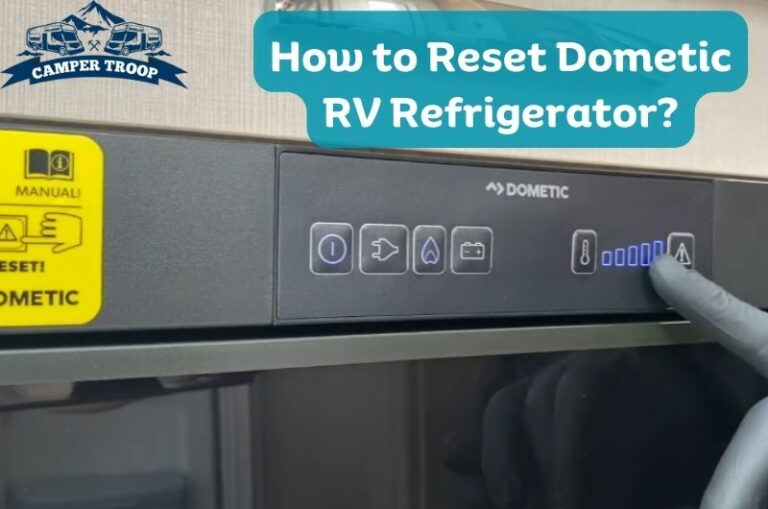
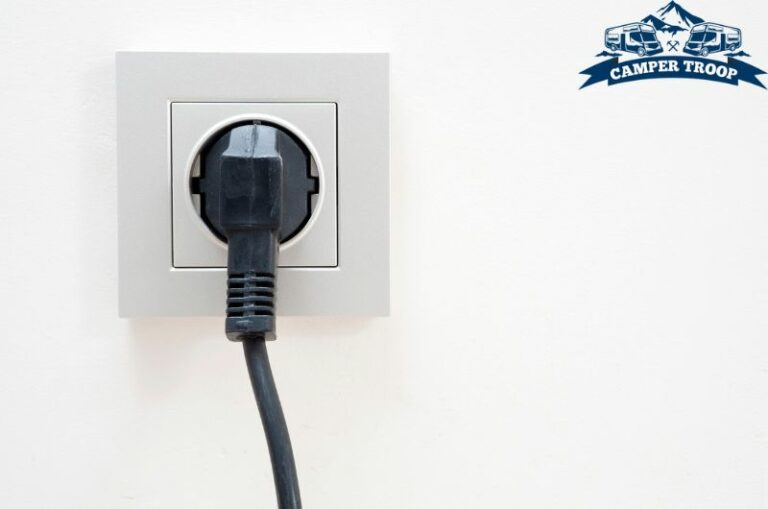
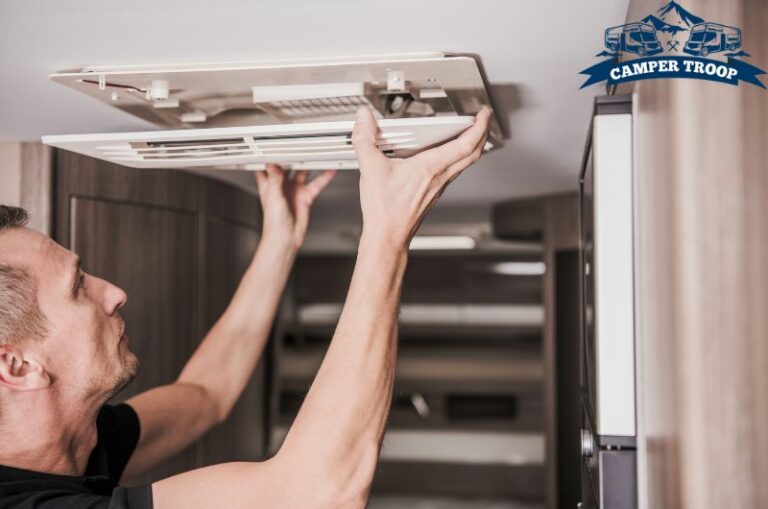
![5 Common Winnebago Lesharo Problems [Solutions Included]](https://campertroop.com/wp-content/uploads/2022/01/Winnebago-Lesharo-Problems-768x509.jpg)
